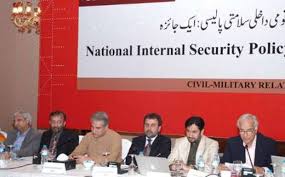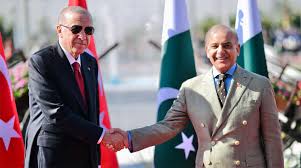Overhauling NISP

By Sohail Ahmed
Islamabad: Climate change is the biggest threat to life on our planet. Wildfires in the Amazon forests, the Bush fires in the Australia and the fatal torrential rains in Pakistan are all signs of climate change. Sadly, Pakistan does not give proper ear to the threats posed by climate change. Pakistani policy makers do not think of it as a threat to internal security which shows why it is missing from the National Internal security Policy (NISP) 2018.
The right to life is enshrined in the article 9 of the constitution of Pakistan. Sadly, it seems these are mere words. The people killed in the rain-related incidents in 2019, in which 137 people have been killed (NDMA)were not the priority of our parliamentarians. Recently, almost 50 people died as a result of flash floods due to three days of heavy rain. Anatol Lieven also in his book address Climate change as the most formidable enemy of Pakistan. Pakistan despite being a very resilient country in the face of other threats, is much vulnerable to Climate change. To our dismay, climate change could not find its place as a threat in the report.
Only a few months back under the government of PTI “The German watch” report revealed that Pakistan is the fifth most vulnerable country to climate change.

The people from the treasury benches may contend that they have accomplished a Bonn challenge with regard to climate change and have also beenlauded by the World Economic Forum for their ‘tree plantation program’ in the KPK province however, there is a need to do more in combating the deadly threat of Climate change.However, the first thing would be to add the threat of climate change in the new comprehensive NISP framework as Climate change is hazardous directly as well as indirectly to our internal security.
Climate change is the more profound challenge to internal security of our country than extremism. In fact, ” the year 2019 and 2020 have been the safer year than preceding years in terms of terrorist attacks” quoted by the Prime Minister Imran khan to various foreign journalists. To verify, he seems right as the news suggests that around innocent 130 people were killed in terrorist attacks or related incidents. However, climate change alone took away more than 250 precious lives in these years.
At the outset of the second decade of the second millennium, the country was welcomed with the harsh winter. In its south-west province capital city Quetta saw its record snowfall which resulted in the tragic loss of 31 people. Besides, there was also a deadly avalanche in Azad Kashmir which took away the lifeof more than a hundred people. Thus, Climate change is the direct threat to Pakistanis.
Besides direct threats, climate change poses indirect threat to the internal security by affecting water resources, food security and already faltering economy which would ultimately lead to accelerate the inter-provincial rifts. One of reasons why wheat yields were lesser this year was heavy monsoon rains. Moreover, the climate change would exacerbate the unplanned urbanisation ending in the sprawling of the slums in the big cities. These are the reasons among many other that qualify why Climate change also has indirect threat to national security.
Notwithstanding the ambit of NISP has been widened to include cyber terrorism, the absence of the climate change bears far-reaching implications to the national security of Pakistan. Therefore, another R should be added to “Revisit the NISP” be added in a reports that Climate change could be added in the policy as Climate change is the biggest threat to internal security of Pakistan.
Hopefully, this would be taken seriously as the matter is urgent so our Prime Minister should formulate a new internal policy and work collectively to counter this threat before the “Winter” finally may befall the land of the pure.

Mr. Sohail Ahmed is concerned with and advocates for the protection of the environment. He seeks to improve and protect the quality of the natural environment through changes to environmentally harmful human activities”





